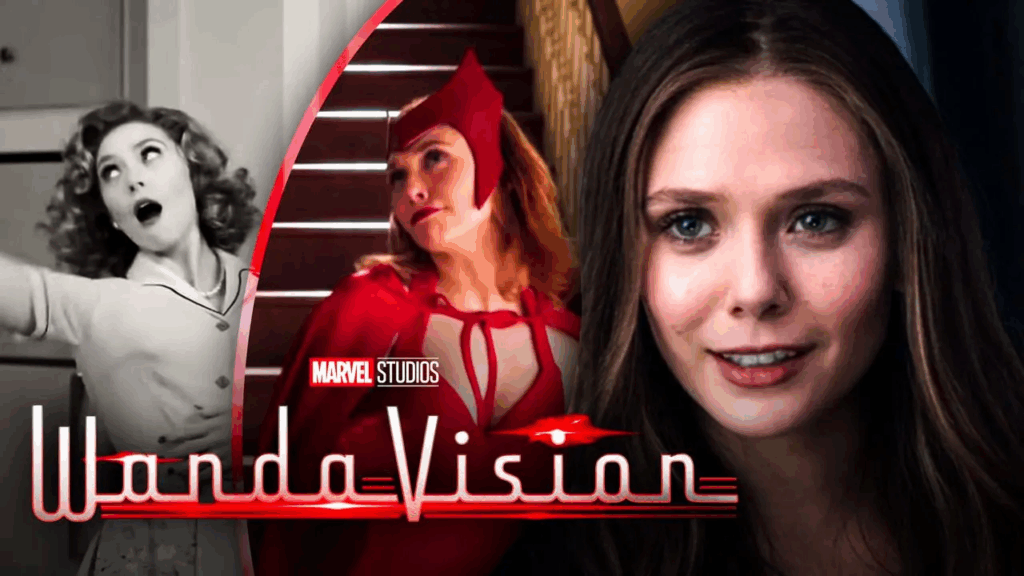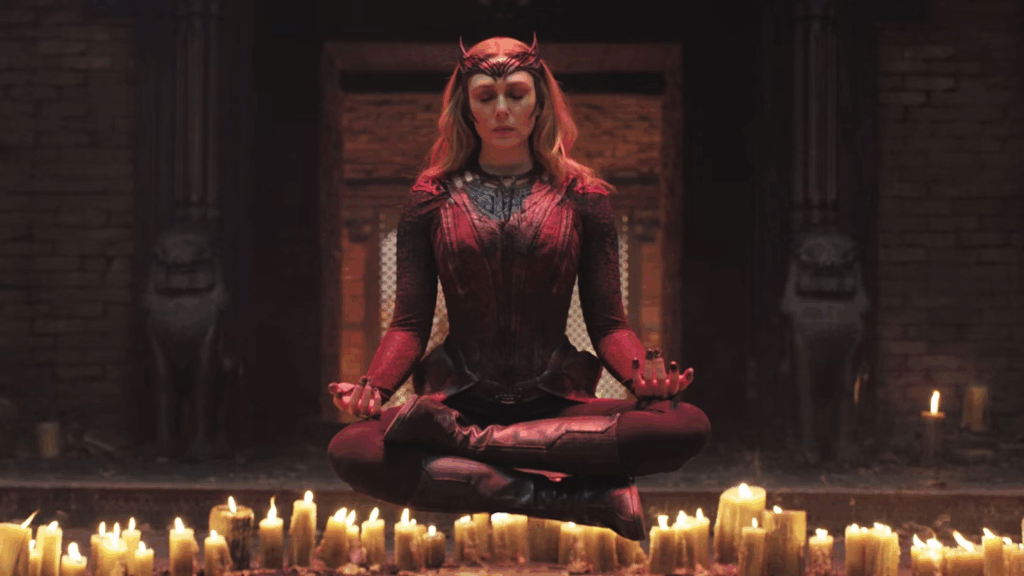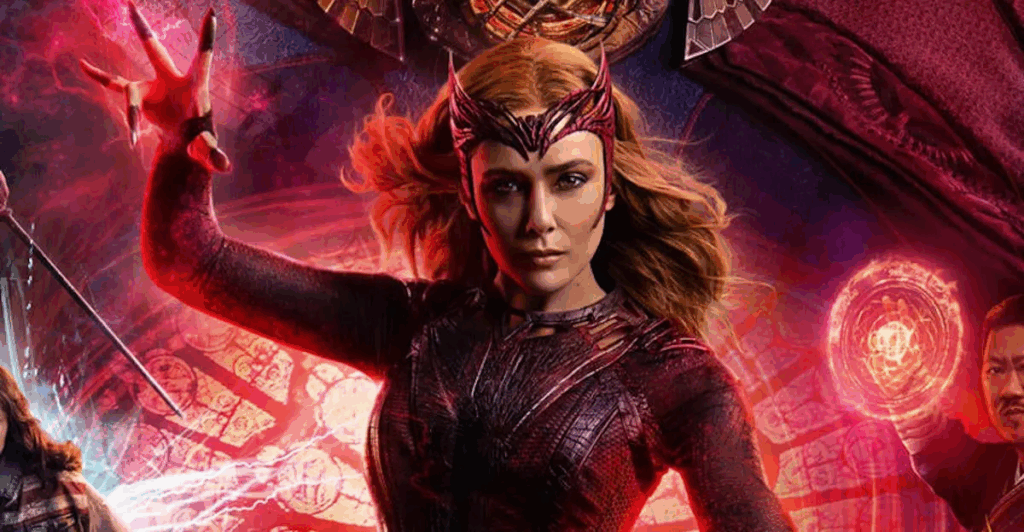WandaVision

WandaVision: Marvel’s Bold Foray into Surreal Superhero Storytelling
Introduction
WandaVision, released in 2021 on Disney+, marks Marvel Studios’ ambitious entry into serialized television, expanding the Marvel Cinematic Universe (MCU) with a unique blend of sitcom homage, psychological drama, and superhero spectacle. Directed by Matt Shakman and created by Jac Schaeffer, the nine-episode series serves as a character-driven exploration of Wanda Maximoff, aka Scarlet Witch, and Vision, following the events of Avengers: Endgame (2019). Premiering on January 15, 2021, WandaVision captivated audiences with its innovative storytelling, emotional depth, and meta-commentary on grief, identity, and the power of media. As the MCU’s first Disney+ series, it set a high bar for the franchise’s small-screen ventures.

Plot Summary
WandaVision unfolds in the seemingly idyllic town of Westview, New Jersey, where Wanda Maximoff (Elizabeth Olsen) and Vision (Paul Bettany) live as a married couple in a reality that mimics classic American sitcoms. Each episode initially adopts the aesthetic and tone of a different decade, from the 1950s I Love Lucy-style black-and-white episodes to the colorful, Modern Family-esque 2000s. However, cracks in this perfect world reveal that Westview is not what it seems.
As the series progresses, it becomes clear that Wanda, grappling with immense grief, has created a false reality using her chaos magic, trapping Westview’s residents in a controlled, sitcom-inspired illusion. Vision, who died in Avengers: Infinity War (2018), exists as a construct of Wanda’s powers, raising questions about his autonomy and existence. Meanwhile, outside Westview, S.W.O.R.D. (Sentient World Observation and Response Department), led by Acting Director Tyler Hayward (Josh Stamberg), investigates the anomaly, with help from astrophysicist Darcy Lewis (Kat Dennings), FBI agent Jimmy Woo (Randall Park), and the powerful Monica Rambeau (Teyonah Parris).
The narrative weaves between Wanda’s sitcom fantasy and the external investigation, exploring her trauma and the moral implications of her actions. The arrival of Agatha Harkness (Kathryn Hahn), a cunning witch with her own agenda, adds layers of mystery and conflict. The series builds to a climactic confrontation that reveals Wanda’s true power as the Scarlet Witch and forces her to confront the cost of her reality-altering choices.

Cast and Characters
WandaVision features a talented ensemble that grounds its surreal premise with emotional authenticity:
- Elizabeth Olsen as Wanda Maximoff/Scarlet Witch: Olsen delivers a tour-de-force performance, balancing sitcom comedy with raw vulnerability as Wanda navigates grief and power.
- Paul Bettany as Vision: Bettany brings depth to Vision, portraying both his sitcom-husband charm and existential curiosity as he unravels the truth of Westview.
- Kathryn Hahn as Agatha Harkness: Hahn steals scenes as the charismatic and manipulative Agatha, whose reveal as a villain is a highlight of the series.
- Teyonah Parris as Monica Rambeau: Parris shines as Monica, a determined and empathetic hero who gains powers through her exposure to Wanda’s magic.
- Kat Dennings as Darcy Lewis: Dennings reprises her Thor role, adding humor and intellect as a scientist aiding S.W.O.R.D.’s investigation.
- Randall Park as Jimmy Woo: Park’s FBI agent brings levity and heart, connecting the series to the broader MCU through his Ant-Man and the Wasp roots.
Supporting performances, including Evan Peters as a mysterious figure and the residents of Westview (like Debra Jo Rupp as Mrs. Hart), enrich the series’ layered narrative.

Themes and Symbolism
WandaVision is a rich tapestry of themes, blending emotional resonance with cultural commentary:
- Grief and Trauma: At its core, the series is an exploration of Wanda’s grief over Vision’s death and her past losses, using the sitcom format as a metaphor for escapism.
- Identity and Power: Wanda’s journey to embrace her identity as the Scarlet Witch examines the intersection of personal agency and immense power.
- Media and Nostalgia: The sitcom framework critiques the idealized narratives of television, reflecting how media shapes perceptions of reality.
- Ethics of Control: The series raises questions about the morality of Wanda’s actions, as her desire to preserve her happiness comes at the expense of Westview’s residents.
Symbolism, such as the recurring use of red (representing Wanda’s chaos magic) and the sitcom TV screen as a barrier between reality and fantasy, enhances the series’ depth.

Production and Development
Created by Jac Schaeffer and directed by Matt Shakman, WandaVision was produced by Marvel Studios with a reported budget of $25 million per episode. Filming took place in Atlanta, Georgia, and Los Angeles, California, with the production team meticulously recreating sitcom aesthetics, from period-accurate sets to live-audience filming techniques for early episodes.
The series’ visual style, crafted by cinematographer Jess Hall, shifts seamlessly between sitcom tropes and cinematic drama, while Mark Worthington’s production design captures the evolution of television aesthetics. Composer Christophe Beck’s score, paired with era-specific sitcom theme songs by Kristen Anderson-Lopez and Robert Lopez (including the viral “Agatha All Along”), adds emotional and nostalgic layers.
WandaVision was conceived as a bold experiment to expand the MCU’s storytelling, blending genres to differentiate it from Marvel’s cinematic output. Schaeffer and Shakman drew inspiration from classic sitcoms like The Dick Van Dyke Show, Bewitched, and Malcolm in the Middle, as well as psychological thrillers, to create a unique narrative structure.

Reception and Impact
WandaVision premiered to critical acclaim, earning a 92% approval rating on Rotten Tomatoes. Critics praised its innovative format, Olsen and Bettany’s performances, and its emotional depth, though some noted pacing issues in the middle episodes. The series’ weekly release model sparked fervent fan theories and online discussions, particularly around Evan Peters’ casting and the true nature of Westview.
The show was a cultural phenomenon, with “Agatha All Along” becoming a chart-topping hit and memes flooding social media. It garnered 23 Emmy nominations, winning three for Outstanding Limited Series Production Design, Costumes, and Original Music and Lyrics. Commercially, WandaVision boosted Disney+ subscriptions and solidified the platform’s role in the MCU’s Phase Four.
The series also set up key MCU projects, including Doctor Strange in the Multiverse of Madness (2022), where Wanda’s story continues, and Agatha All Along (2024), a spin-off centered on Hahn’s character. Its exploration of grief resonated with audiences during the COVID-19 pandemic, adding to its cultural relevance.

Legacy and Influence
WandaVision redefined superhero storytelling by proving that serialized television could deliver the emotional and narrative complexity of MCU films. Its genre-blending approach influenced subsequent Disney+ series like Loki and Moon Knight, while its focus on character-driven drama set a new standard for the franchise. The series’ sitcom homage sparked renewed interest in classic television, with fans revisiting shows that inspired its aesthetic.
Wanda’s transformation into the Scarlet Witch and Monica Rambeau’s emergence as a superhero expanded the MCU’s mythology, introducing new possibilities for cosmic and multiversal narratives. The show’s exploration of mental health and trauma continues to resonate, making it a touchstone for discussions about representation in superhero media.

Conclusion
WandaVision is a bold, innovative, and emotionally resonant addition to the Marvel Cinematic Universe, blending sitcom nostalgia with superhero stakes to tell a deeply personal story. With standout performances, a daring narrative structure, and themes of grief, identity, and power, it captivated audiences and redefined what an MCU project could be. As a cultural and creative milestone, WandaVision remains a testament to Marvel’s willingness to take risks, leaving an indelible mark on television and the superhero genre.